Pilot avoided bigger tragedy by ditching plane in river
Updated: 2015-02-06 08:42
(chinadaily.com.cn/Agencies/Xinhua)
|
||||||||
TAIPEI/BEIJING, -- Pilot of the crashed TransAsia Airways plane narrowly avoided hitting buildings and ditched the stalled aircraft in a river, likely averting a worse disaster, according to a report.
The pilot and co-pilot of the almost-new turboprop ATR 72-600 were among those killed, Taiwan's aviation regulator said. TransAsia identified the pilot as 42-year-old Liao Chien-tsung.
"He really tried everything he could," Taipei Mayor Ko Wen-je said of the pilot, his voice breaking with sobs.
At least 31 people were killed when Flight GE235 lurched between buildings, clipped a taxi and an overpass with one of its wings and crashed upside down into shallow water shortly after take-off from a downtown Taipei airport on Wednesday. There were 15 known survivors and 12 more unaccounted for.
According to Taiwan's Mainland Affairs Council, 22 of the dead were from the Chinese mainland. Altogether 31 passengers from the Chinese mainland, including three children, were onboard Flight GE235 which was heading for Kinmen from Taipei.
The mainland passengers were on trips organized by two travel agencies from Xiamen city in Fujian province, Taiwan tourism authority confirmed.
Amateur video recorded by a car dashboard camera showed the plane nose-up as it barely cleared the buildings close to Taipei's Songshan airport before crashing into the river.
"The pilot's immediate reaction saved many people," said Chris Lin, brother of one of the survivors. "I was a pilot myself and I'm quite knowledgeable about the immediate reaction needed in this kind of situation."
Aerospace analysts said it was too early to say whether the pilots intentionally pulled the plane above the buildings, and noted that the crew may have been aiming for the river to reduce casualties.
A more conclusive picture will emerge only when authorities release details from the plane's cockpit voice and flight data recorders, which were recovered on Wednesday.
"He's missed the buildings but it is premature to make an analysis of what happened on this flight. We have to wait for the data from the cockpit voice recorder and flight recorder," said aviation analyst Geoffrey Thomas, editor-in-chief of airlineratings.com
Taiwan media reported that it appeared Liao had fought desperately to steer his stricken aircraft between apartment blocks and commercial buildings.
The head of Taiwan's Civil Aeronautics Administration, Lin Tyh-ming, has said Liao had 4,914 flying hours under his belt and the co-pilot 6,922 hours.
The Taiwan Aviation Safety Council said it has invited accident investigators from the Chinese mainland to take part in the accident investigation.
Ma Xiaoguang, spokesman with the State Council Taiwan Affairs Office, said on Thursday afternoon that the mainland civil aviation authorities will dispatch investigators.
Investigators from France, producer of the aircraft, and from Canada, producer of the engine, have also been invited.
Meanwhile, TransAsia decided on Thursday to hand out compensation of 200,000 new Taiwan dollars (about $6,356) to each injured victim (including the two in the taxi), and compensation of 1.2 million new Taiwan dollars to the family of each identified fatality.
As of present, 44 family members of the mainland victims have arrived in Taiwan.
Since the crash, Taiwan's civil aeronautics authority has conducted safety checks on power systems of the island's ATR-72 aircraft.
Chen Deming, president of the mainland-based Association for Relations Across the Taiwan Straits, expressed his hope for more efforts in the rescue and said that a work team has been sent to Taiwan to help the aftermath.
Taiwan leader Ma Ying-jeou visited hospitals and expressed condolences to both mainland and Taiwan families. He urged full strength in rescue and asked administrative bureaus to carry out strict inspection into the accident.
Many Taiwanese social organizations and volunteers also expressed condolences and provided rescue materials.
According to the authority, TransAsia had already completed two flights using ATR-72 aircraft on Wednesday before the crash, with flight and maintenance reports of these flights featuring no record of malfunction.
Dispatchers on duty denied the possibility of a rushed takeoff when interviewed by investigators.
Taipei Songshan Airport had canceled 11 local flights, which were all due to be served by ATR-72 aircraft, by 11:45 am on Thursday, according to the airport's website.
A cross-Strait emergency response mechanism has been launched to deal with the accident.
According to Taipei authorities, the crashed plane had been in service since April 2014 and was subject to a routine safety check last month.
TransAsia announced on Thursday that passengers who wanted to cancel their bookings would have their usual commission fees waived.
This is not the first time that an ATR-72 aircraft has crashed in Taiwan. On July 23, 2014, TransAsia Airways flight GE222 crashed on Taiwan's Penghu Island, killing 48 people.
TransAsia Airways, founded in 1951, was Taiwan's first private airline, mainly focusing on short overseas flights.
In a separate development, Ma Xiaoguang, spokesman for the State Council's Taiwan Affairs Office on Thursday said a planned visit by Zhang Zhijun, head of the office, to Kinmen has been delayed, as "both sides need to focus on the aftermath of the accident," Ma said.
Zhang was originally scheduled to meet with Taiwan's mainland affairs chief Wang Yu-chi on Feb. 7-8.
The updated date of the meeting was not revealed immediately.
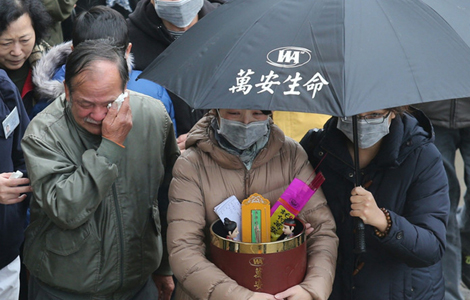
 Family members mourn air crash victims
Family members mourn air crash victims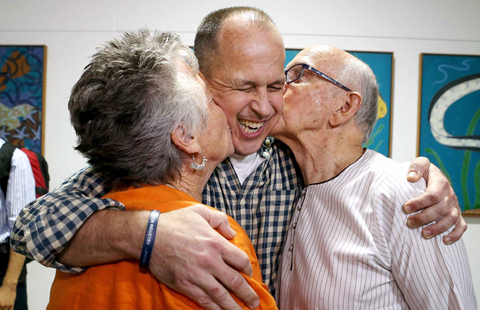
 Australian journalist Peter Greste arrives home
Australian journalist Peter Greste arrives home
 Celebrating being mermaids at Merfest convention
Celebrating being mermaids at Merfest convention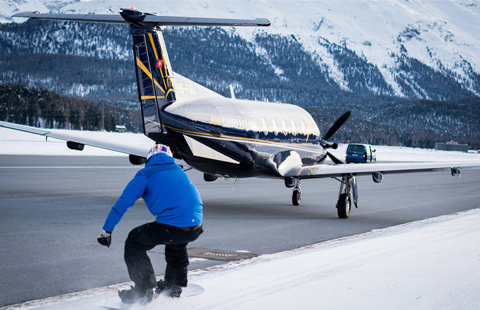
 Snowboarder towed by a plane reaches speed of 78mph
Snowboarder towed by a plane reaches speed of 78mph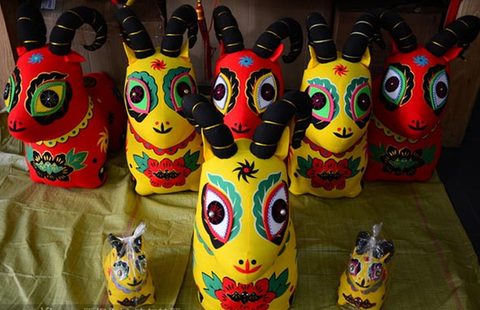
 Business opportunities of 'Year of the Sheep'
Business opportunities of 'Year of the Sheep'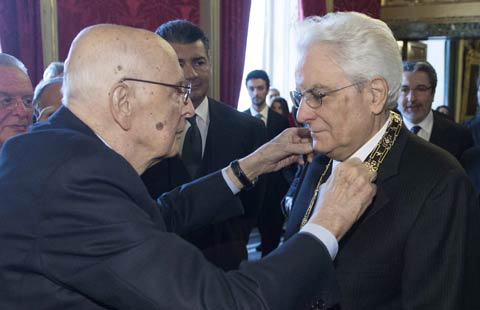
 Italy's new president gets unanimous welcome
Italy's new president gets unanimous welcome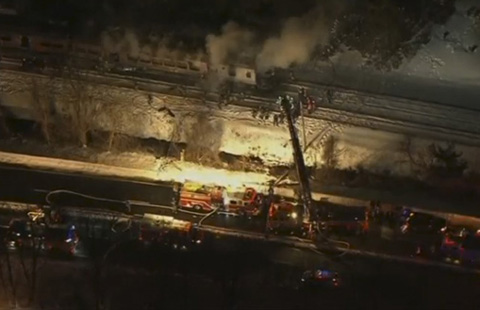
 At least 6 dead in Metro-North train crash
At least 6 dead in Metro-North train crash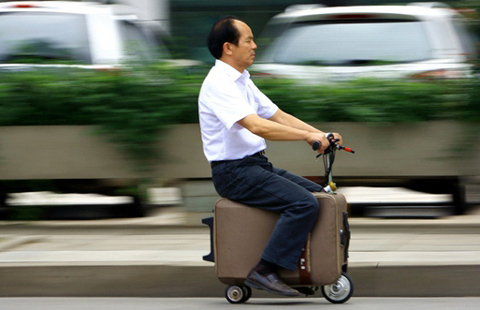
 Torturous, beautiful and fun ways of commuting
Torturous, beautiful and fun ways of commuting
Most Viewed
Editor's Picks

|

|

|

|

|

|
Today's Top News
'Rich agenda' for China, US cooperation: official
Chinese IPOs in US could cool
US deputy secretary of state to visit Asia
Lawyers: Evidence shows Saudi Arabia aided 9/11 hijackers
31 killed in TransAsia plane crash, 16 from Chinese mainland
Top Obama communications advisers to step down
Senior US official urges DPRK to act in 'good faith'
Plane with 53 passengers aboard crashes into river
US Weekly

|

|








